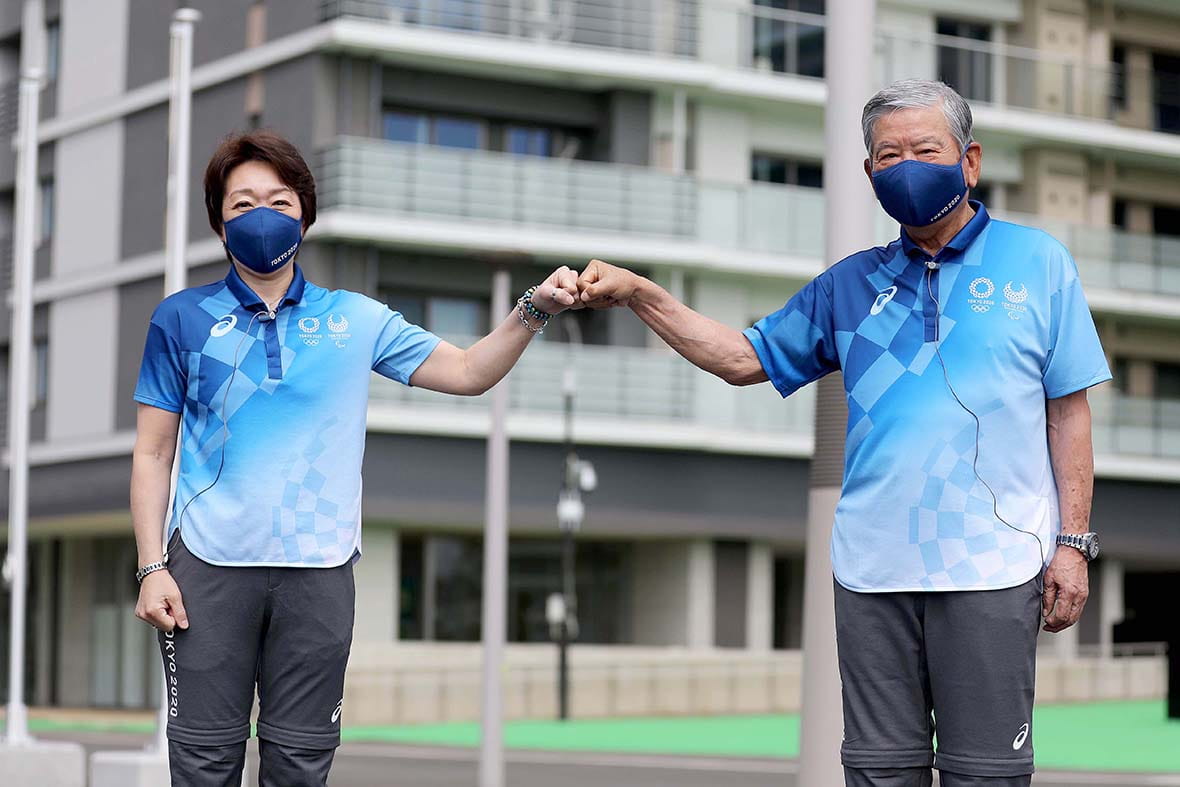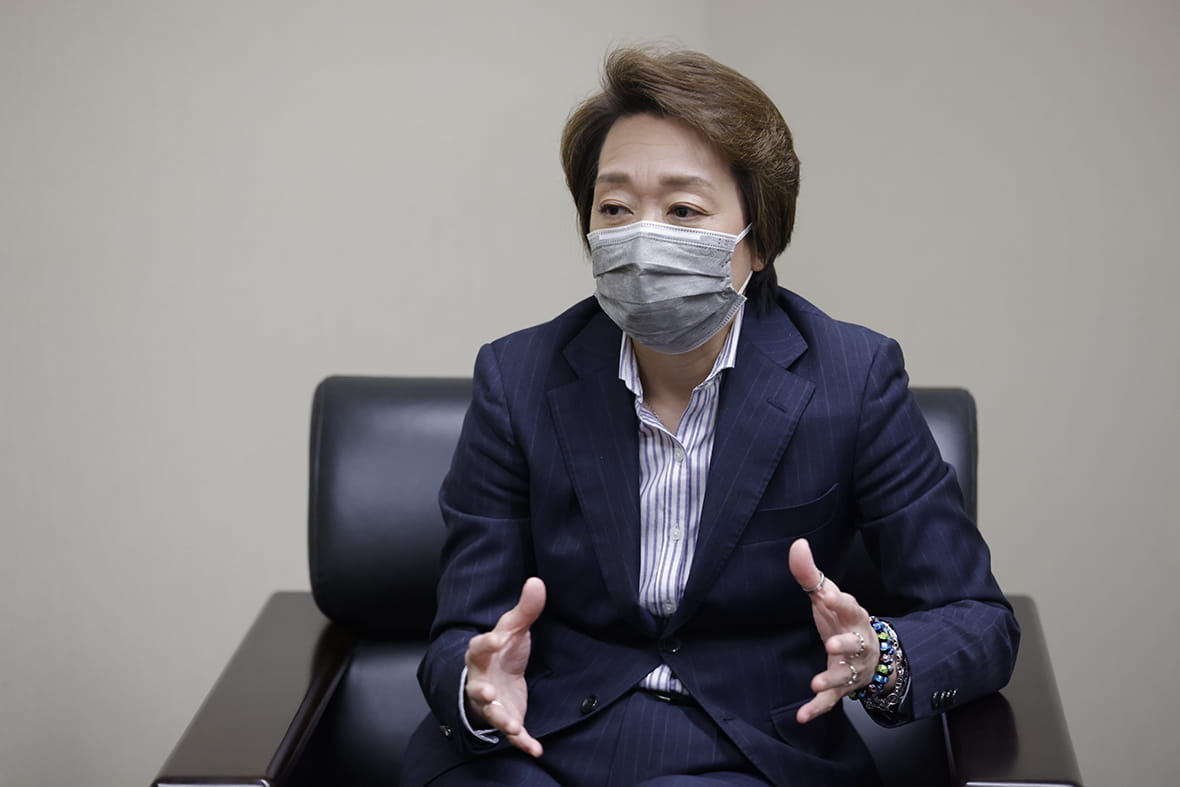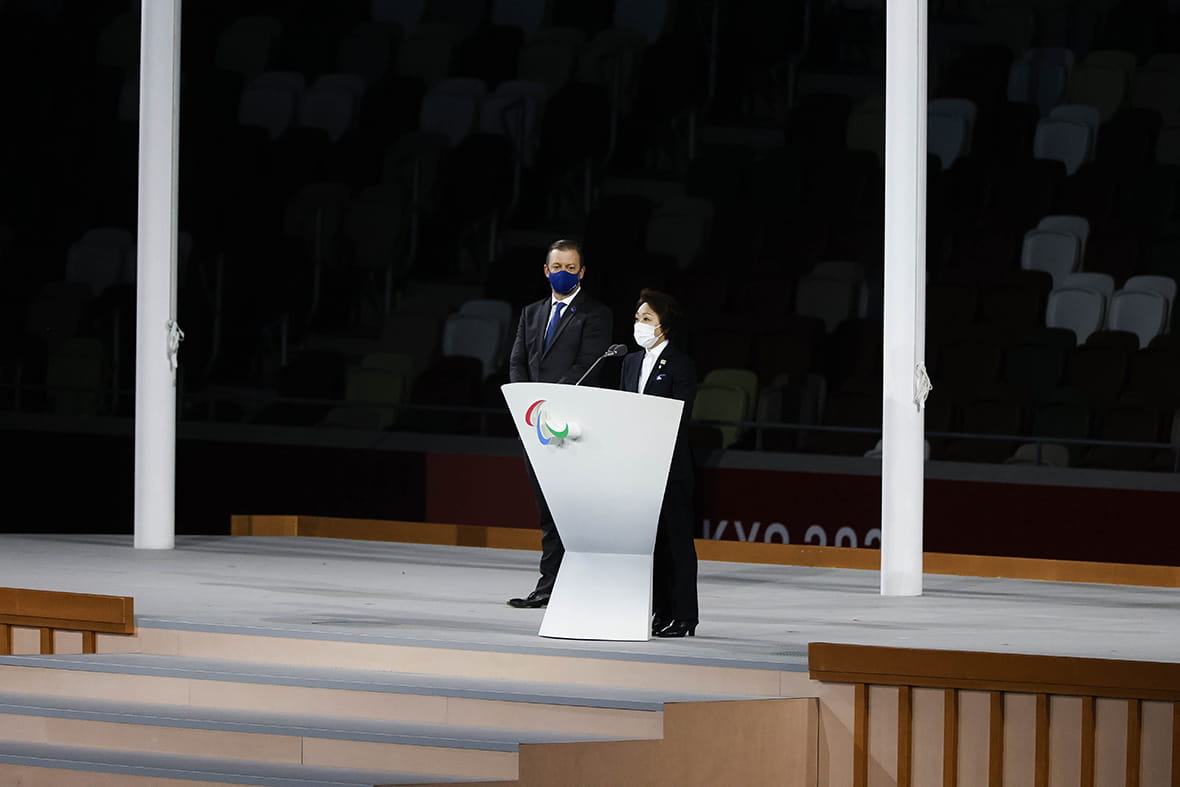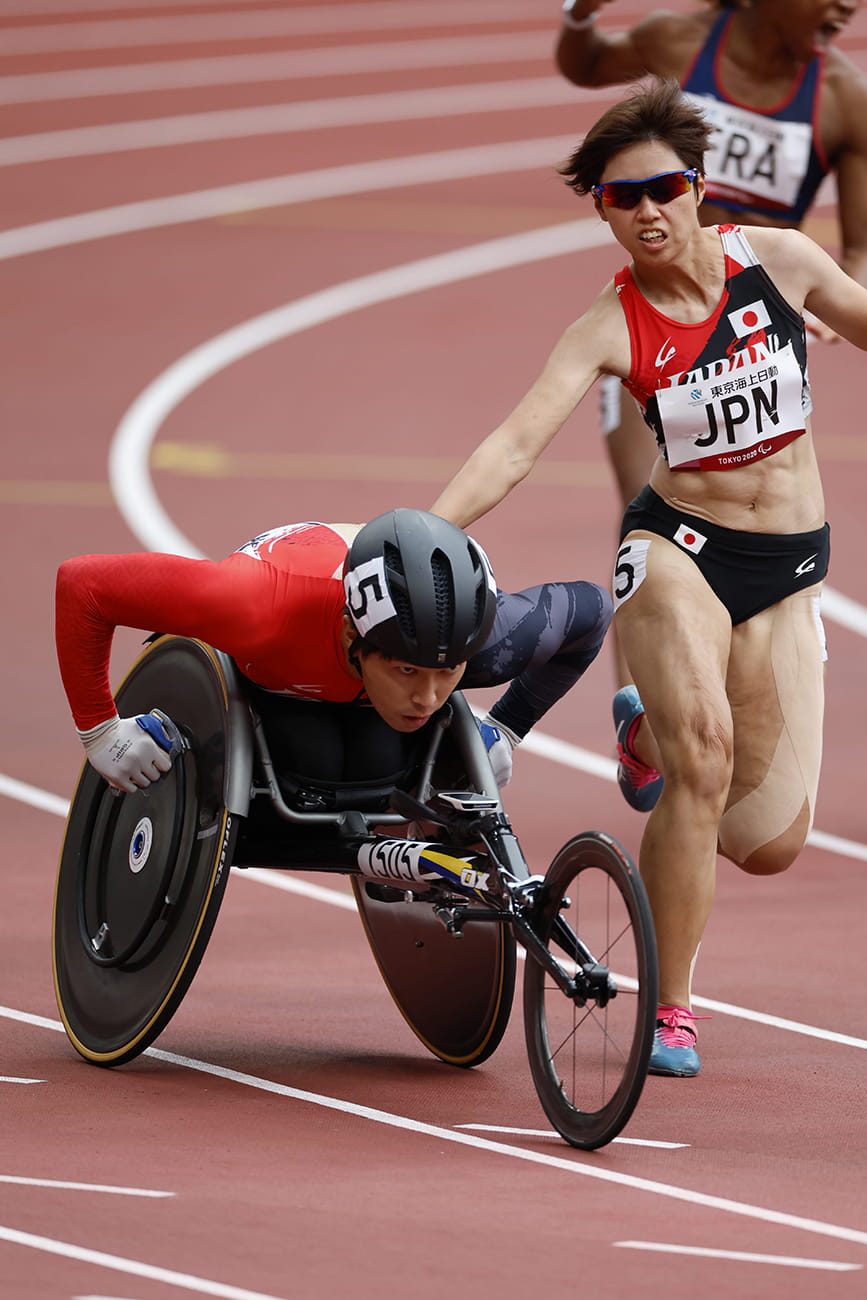SSF: Opinion polls conducted prior to Tokyo 2020 showed that a majority of people in Japan favored postponing or canceling the Games.
SEIKO HASHIMOTO: Yes, that’s true, but we should remember that before the COVID-19 pandemic, most people were in favor of hosting the Games. A Cabinet Office poll conducted in December 2019 showed that 85.5 percent of respondents believed the 2020 Tokyo Olympic and Paralympic Games would be “good for Japan.” Surveys have shown that in every host country, around 30 percent of residents have a negative view of the Games—about a third of whom have no interest in sports whatsoever. This means that the remaining two-thirds do have an interest. My view is that messaging efforts should be directed at persuading these people of the significance of the Games.
I wasn’t perturbed by the fact that a majority of people either were in favor of canceling the Olympic and Paralympic Games or had reservations about going ahead with them during the pandemic. That’s because I knew that many of them were originally enthusiastic about the event. They were dissatisfied and anxious about the government’s COVID countermeasures, and Tokyo 2020 became a convenient target of their grievances. The media played to people’s fears with stories that incited even greater anxiety. So our work was focused on painstakingly putting in place the precautionary COVID measures that would reassure people who originally had a favorable view of the Games.
My personal priority was preventing the hostility of the media and the public toward the Games from traumatizing the athletes, staff workers, and the volunteers, so I resolved to bear the brunt of the criticism. Making sure the Games would be held was my overriding concern on taking over as president of the organizing committee from Mr. Yoshiro Mori.

Seiko Hashimoto, left, with Olympic and Paralympic Village Mayor Saburo Kawabuchi. ©Photo Kishimoto
Given the public’s mood at the time, I think the decision to stage the Games without spectators was the right one. But because of the strict COVID measures in place, the venues were probably the safest places to be in Tokyo. The various playbooks we issued for athletes, officials, the media, staff workers, and others stipulated stringent guidelines to prevent infection even in busy areas. Had the Games been held during normal times, I believe we would have broken previous Olympic attendance records. We’d prepared a number of innovations to give spectators an immersive viewing experience, so it was a great pity we didn’t get the chance to demonstrate them.
SSF: The pandemic wasn’t the only challenge for the organizing committee. A number of senior figures in charge of the opening and closing ceremonies were forced to step down for comments that were deemed inappropriate.
HASHIMOTO: The organizing committee conducted background checks of all senior officials, but there are limits to what we can ascertain. For me, it was a lesson in the lengths to which the media would go to find videos and other materials that could be used against public figures. Information disclosure is certainly important, but we also have to be mindful of people’s careers. We tried dealing with the situation in ways so as not to undermine their future while preserving the integrity of Tokyo 2020.

©Photo Kishimoto
SSF: As soon as you took over as president of the organizing committee at the end of February 2021, you established a workforce to promote gender equality, and in March the number of female board members was raised to twelve, or 42 percent of the board.
HASHIMOTO: Since serving as minister of state for gender equality, I’ve been very sensitive about how other countries view Japan. According to the Gender Gap Index published in March 2021 by the World Economic Forum, Japan ranked 120th out of 156 countries—among the lowest for developed nations, and lower than South Korea, China, and many ASEAN countries. I was named president of the Tokyo 2020 Organizing Committee after Mr. Mori resigned over comments regarding the role of women in athletic organizations. The world was curious to see who would replace him, so I regarded this as an opportunity for Japan to make a positive impression on global opinion. And judging by the reactions I’ve seen, the decision to raise the share of female board members appears to have made a big impact.
SSF: What were some of your takeaways of the Tokyo Paralympic Games?
HASHIMOTO: This was the first time I was involved in organizing the Paralympics. I hadn’t seen any Paralympic events in person since the 1998 Nagano Games, and Tokyo 2020 was the first Summer Paralympics that I attended. I was genuinely surprised by the heights to which the level of competition had risen, with world-class athletes pushing themselves beyond what one would imagine to be their physical limits. I was struck by the fierce determination of both the competitors and their supporters, and at the same time, I saw the Games as a microcosm of all the policy challenges that we in government need to address. Sports is both an art form and a great source of learning for schoolchildren, and we need to build a society supportive of such athletes. This, I believe, holds the key to elevating Japan into a true world leader.

Delivering remarks at the closing ceremony of the Tokyo 2020 Paralympic Games. ©Photo Kishimoto
In the Paralympic Village, I saw the same competitors in everyday settings. I ran into a visually impaired athlete with a white cane being escorted by someone with an arm disability. There was an amputee hopping around on one leg without a prosthesis. Most people had a disability of one kind or another, but that didn’t make them special. People with various impairments were leading perfectly normal lives, using wheelchairs, prosthetic legs, or whatever was needed to remain active. I wish more children would have opportunities to come across such scenes so they would realize how natural it is to live with a disability and what measures are needed to build a society more accommodating to people with special needs. After all, we’re not going to be as agile as we age, so we might trip over the smallest of steps. We should aim to achieve step-free accessibility wherever possible to ensure that everyone can lead comfortable lives. That’s the kind of society we should seek to build in Japan.

A scene from the Tokyo 2020 Paralympic universal relay. ©Photo Kishimoto
SSF: How would you define Tokyo 2020’s legacy?
HASHIMOTO: I hope to introduce legislation that will communicate the social significance of the Tokyo Olympic and Paralympic Games to future generations. The bill would include concepts like “unity in diversity,” “harmonious and inclusive society,” “universal design,” and other goals of the Games as keys to promoting both physical and mental health, which can lead to healthier, longer lives. As far as I know, there has never been a host country that has made an effort to preserve its Olympic and Paralympic legacy in the form of legislation, so it’s an initiative that I’m sure the IOC would also be pleased to learn.
Translated from an interview conducted in Japanese on November 25, 2021. Read part 2 of the Interview with Tokyo 2020 President Seiko Hashimoto.




